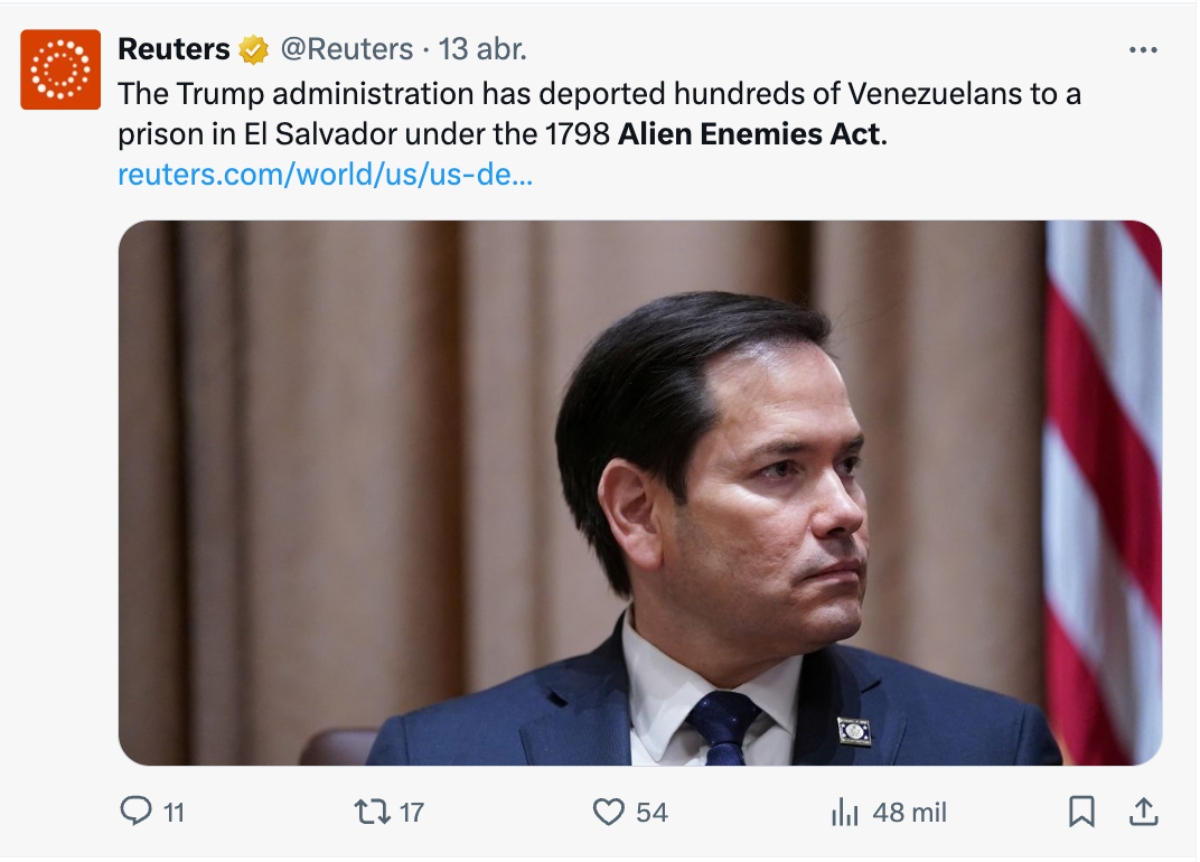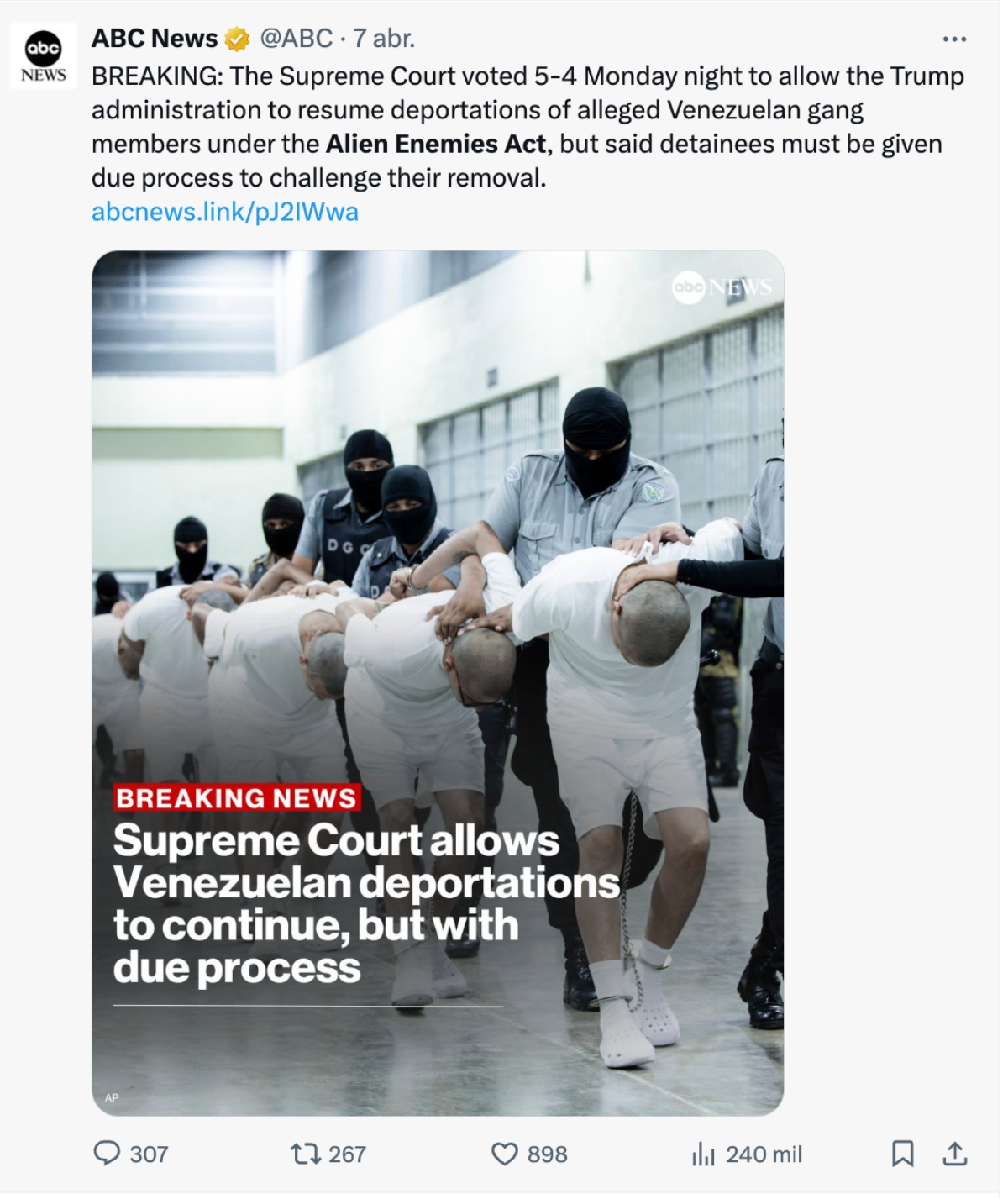A federal judge in Colorado has issued a temporary order blocking the deportation of Venezuelan immigrants detained in the state under the Alien Enemies Act, an 18th-century law rarely used.
Judge Charlotte N. Sweeney of the U.S. District Court for the District of Colorado responded to an emergency request filed by the American Civil Liberties Union (ACLU) on behalf of two Venezuelan nationals facing deportation due to alleged ties to the Tren de Aragua gang—allegations they deny.
What does the Alien Enemies Act say?

The Alien Enemies Act is a federal law enacted in 1798 that grants the President of the United States the authority to detain and deport citizens of enemy nations during times of war or invasion.
Historically, it has been invoked on three occasions: during the War of 1812, World War I, and World War II.
The most recent application was during World War II, when it was used to intern Japanese nationals residing in the United States.
In 2025, President Donald Trump’s administration invoked this law to justify the deportation of immigrants accused of belonging to foreign criminal organizations, such as the Tren de Aragua, arguing that they pose a threat to national security.
Judge issues temporary order

Judge Sweeney determined that, according to a recent Supreme Court ruling, immigrants subject to deportation under this law have the right to a hearing in a federal court before being removed from the country.
Therefore, she issued an order temporarily preventing the deportation of all non-citizens detained in the District of Colorado who could be deported under this legislation.
This order will be in effect for 14 days, with a hearing scheduled for April 21 to assess the situation.
The case of two Venezuelans

The cases prompting this legal action involve two Venezuelan men.
One of them was arrested in January during a raid in Adams County, north of Denver, at an event that authorities described as a “Tren de Aragua party.”
The other was detained in March by federal agents who observed him near a building linked to the gang.
Both were identified as members of Tren de Aragua based on tattoos and other physical indicators—methods that the ACLU considers unreliable and discriminatory.
Not just in Colorado

This ruling follows similar decisions in other states.
Federal judges in Texas and New York have also temporarily blocked deportations under the Alien Enemies Act, allowing affected immigrants to challenge their cases in federal court.
These actions reflect growing concern about the use of a wartime law in current immigration contexts, especially when there is no armed conflict with the immigrants’ countries of origin.
The ACLU and other civil rights groups argue that applying this law in peacetime violates the fundamental rights of immigrants and sets a dangerous precedent.
Meanwhile, the Trump administration defends its use as a necessary tool to protect national security.
The April 21 hearing will be crucial in determining the future of these cases and the legality of applying the Alien Enemies Act in the current immigration context.
Frequently Asked Questions
The Alien Enemies Act, enacted in 1798, grants the President the authority to deport citizens of enemy countries during times of war.
Why is this law being applied in 2025? President Donald Trump’s administration has invoked this law to deport undocumented Venezuelan immigrants accused of belonging to Tren de Aragua, a criminal organization the government has designated as a national security threat.
What does the temporary suspension of deportations in Colorado entail? A federal judge in Colorado issued an order temporarily blocking the deportation of Venezuelan immigrants detained under this law, allowing them to have a hearing in a federal court before being deported. This measure will be in effect for 14 days, with a hearing scheduled for April 21, 2025.
The application of this law in times of peace violates the fundamental rights of immigrants and sets a dangerous precedent
Enter citation here...
Who is protected by this order? The order protects all noncitizen immigrants detained in the District of Colorado who could be deported under the Alien Enemies Act, granting them the right to a judicial hearing before any deportation action.
What rights do affected immigrants have? According to a recent Supreme Court ruling, immigrants subject to deportation under this law have the right to be notified and to challenge their deportation in a federal court before being removed from the country.
Pasos a seguir en esta situación
Consulting an immigration attorney: It is essential to obtain legal advice to understand your rights and available options.
Not signing documents without legal counsel: Avoid signing any documents that could affect your immigration status without guidance from an attorney.
Staying informed: Keep up with updates on the case and judicial decisions that may impact your situation.
Where can I obtain more information and assistance?
American Civil Liberties Union (ACLU): Provides resources and legal assistance for affected immigrants.
Local immigrant rights organizations: Many community organizations in Colorado and other states offer free or low-cost legal support and advice.
For more Immigration news, visit QueOnnda.com.























